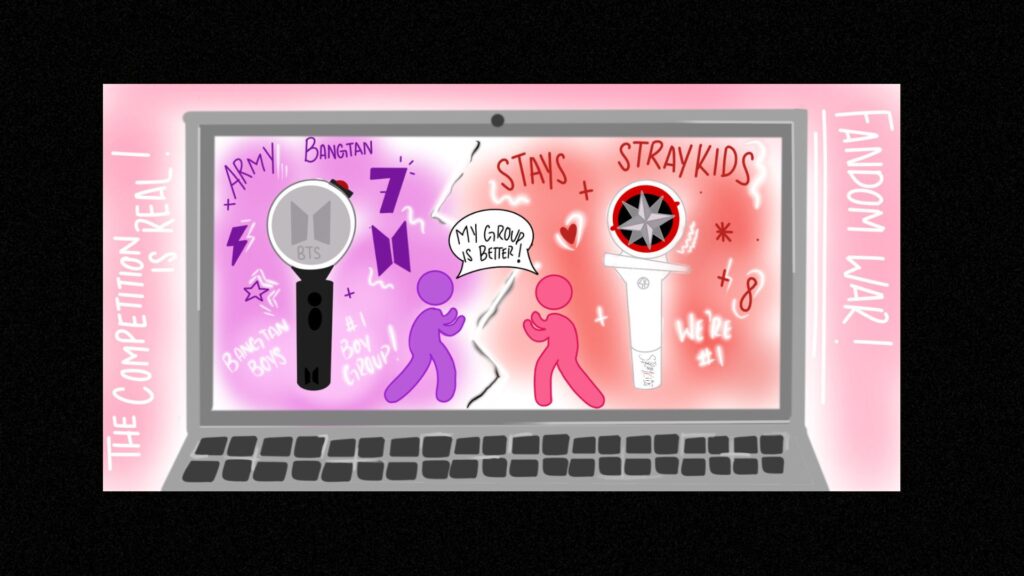The Truth Behind The “Crazy” Fangirls Stigma
Whether you like sports, TV shows, or books, fandom culture is spreading. Every fandom has its own quirks, dynamics, and target audience. However, this should not diminish the value of a fandom or a piece of media.
BTS and Taylor Swift are prime examples of artists who suffer from these misconceptions. Despite being at the forefront of their respective music genres, millions underestimate and mock them because of their fandom demographics.
From haters to critics, many generalize their fans as crazy teenage fangirls and see them as untalented and unworthy of their achievements.
This phenomenon is not new. Iconic bands such as the Beatles went through the same thing, leaving us to wonder how they went from being seen as boybands for hormonal girls to music industry legends.
So, what is truly causing this? Effectively, it is the introduction of men into female spaces and the metamorphosis of those spaces to fit into the male gaze, or as The Guardian labeled it, “mentrification.”
Despite the advancements made in the war against sexism, the subtlety of sexism still reigns in our worldview. Look at how men scoff at the mention of Taylor Swift being considered a good musician or how they wrinkle their noses in the face of K-pop solely because of a general assumption based on a subsection of Twitter fans. The fact is that many men don’t connect or give certain artists credit because they think that they are unworthy of their interest.
It is not until men turn these fandoms into something they dominate that society starts validating them.
Star Trek illustrates this phenomenon. What is considered one of the top franchises for male geek lovers today, in its early days, was seen as a typical housewife show, before starships and computers became a manly thing.
Most girls have probably heard “I bet you can’t name five characters” or “name five unreleased songs” or something to that effect. For most women, enjoying so-called male-targeted media comes with having your knowledge constantly tested to validate that you are a “real fan” and not a “poser.”
All fandoms are open to everyone without any discrimination because they are a space for fans to interact with other fans. For many fandoms, fans exist worldwide, from nine-year-old girls to men in their early 20s or parents in their late 40s.
It would be contradictory to say that all male fans are like this because many men in these female-dominated spaces enjoy the art much like their female counterparts and are looking to embrace and uplift it.
When a man cries over his favorite sports team winning, society doesn’t consider them irrational, just passionate. So, why don’t we give girls this same grace? Just because one is more socially acceptable, doesn’t mean one more is more valid than the other.

